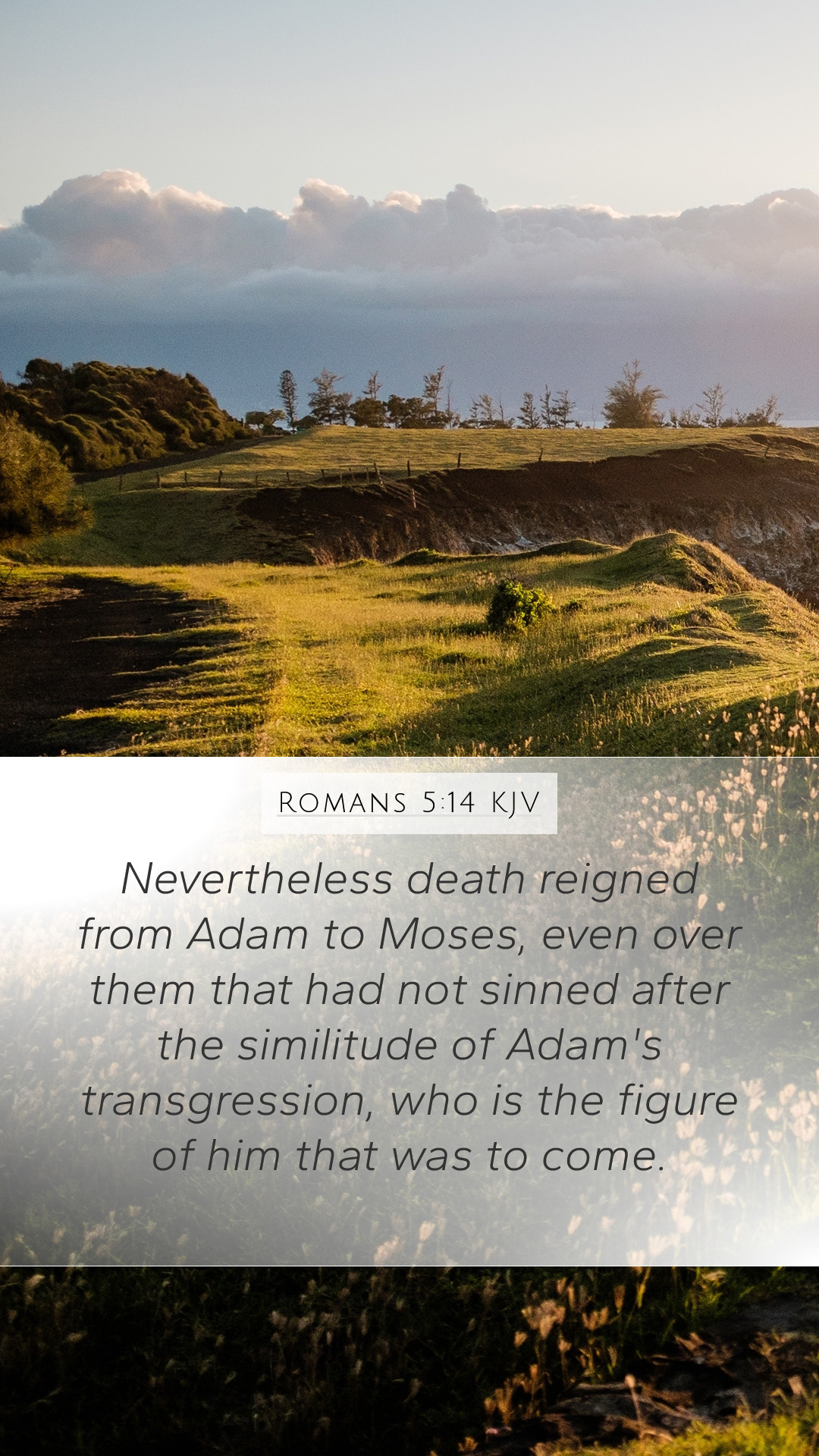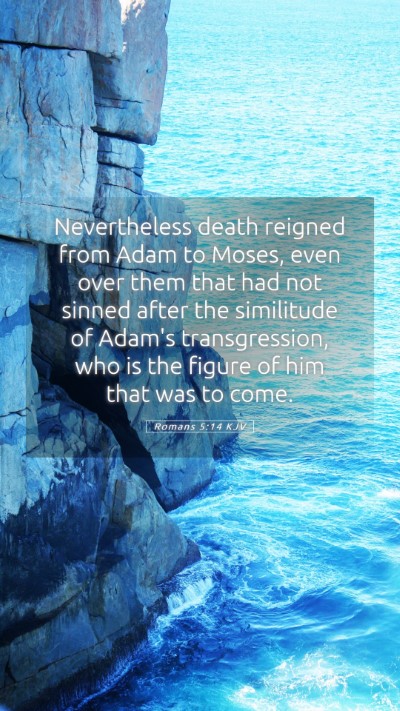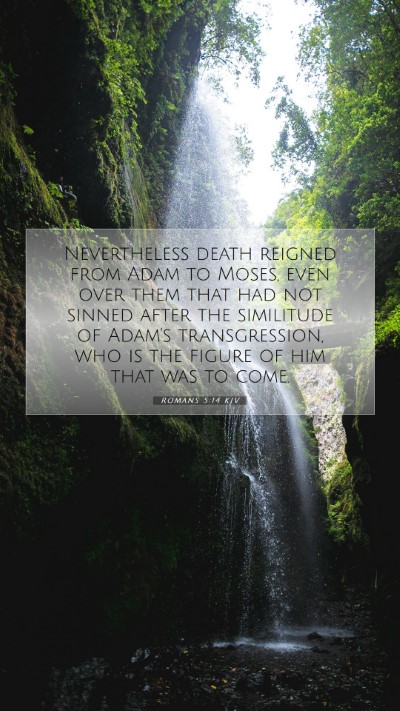Old Testament
Genesis Exodus Leviticus Numbers Deuteronomy Joshua Judges Ruth 1 Samuel 2 Samuel 1 Kings 2 Kings 1 Chronicles 2 Chronicles Ezra Nehemiah Esther Job Psalms Proverbs Ecclesiastes Song of Solomon Isaiah Jeremiah Lamentations Ezekiel Daniel Hosea Joel Amos Obadiah Jonah Micah Nahum Habakkuk Zephaniah Haggai Zechariah MalachiRomans 5:14 Meaning
What is the meaning of Romans 5:14?
Nevertheless death reigned from Adam to Moses, even over them that had not sinned after the similitude of Adam's transgression, who is the figure of him that was to come.
Romans 5:14 Bible Verse Meaning
Understanding Romans 5:14
Romans 5:14 states: "Nevertheless death reigned from Adam to Moses, even over them that had not sinned after the similitude of Adam's transgression, who is the figure of him that was to come." This verse encapsulates a profound theological insight into sin, death, and the typology of Christ. Below, we offer a detailed examination of this verse utilizing insights from public domain commentaries such as those by Matthew Henry, Albert Barnes, and Adam Clarke.
Bible Verse Meanings
The Apostle Paul, in writing to the Roman church, emphasizes the reign of death due to Adam's sin. Matthew Henry notes that death entered the world through one man (Adam), establishing a chain reaction, where even those who did not directly sin as Adam did are subject to death. This highlights the universality of sin and death rooted in the historic event of the Fall. Adam serves as a representative figure whose actions have consequences for all humanity.
Historical Context
To grasp the depth of Romans 5:14, one must consider the historical context of the Jewish law represented by Moses, which Paul metaphorically contrasts with Adam. Albert Barnes explains that the law, given through Moses, could not reverse the effects of Adam's sin. Rather, it illuminated sin while rendering all humanity ultimately sinful and in need of God's grace, as evidenced in the New Testament.
Typological Significance
Adam is referred to as a "figure" or type of Christ. Adam's actions led to condemnation, while Christ's sacrifice offers redemption. Adam's fall resulted in death's reign, a stark contrast to the life and grace that come through Christ. Adam Clarke reinforces this typology, illustrating that where Adam brought spiritual and physical death, Christ brings salvation and eternal life. Understanding this typology is crucial for anyone seeking deeper Bible verse interpretations and Bible verse explanations.
Understanding Scripture Through Commentary
In examining this verse, we can gain insights into human ancestry's impact on our spiritual journey. The commentary provided by each of the mentioned authors reveals how Paul’s epistle invites believers to reflect on the larger narrative of redemption. This verse confirms the doctrine of original sin, emphasizing our fallen nature inherited from Adam.
Key Insights from Public Domain Commentaries
- Matthew Henry: Death reigned universally, a stark reminder of sin's consequences.
- Albert Barnes: The law illuminates sin but does not hold power to save from it.
- Adam Clarke: Understanding Adam as a type is essential for comprehending Christ's redemptive work.
Application to Daily Life
In applying Romans 5:14 to our daily lives, we must acknowledge humanity's brokenness but also the hope offered through Christ. This verse sparks important conversations in Bible study groups and serves as a foundation for online Bible study materials. It invites reflection on how the narrative of Adam and Christ speaks to our own lives as we contend with sin and strive for the grace of God.
Related Bible Cross References
- Genesis 3:6-7 - The Fall of Man
- 1 Corinthians 15:21-22 - The resurrection through Christ
- Hebrews 2:14-15 - Jesus' victory over death
Conclusion
Romans 5:14 is an essential text offering rich opportunities for Bible study insights and Biblical exegesis. By studying this verse along with commentaries, believers can deepen their understanding of Scripture and ascertain the vast implications concerning sin, death, and the type of salvation that is found exclusively in Christ. Engaging with such scripture enriches Bible study resources and contributes to a more profound faith journey.


